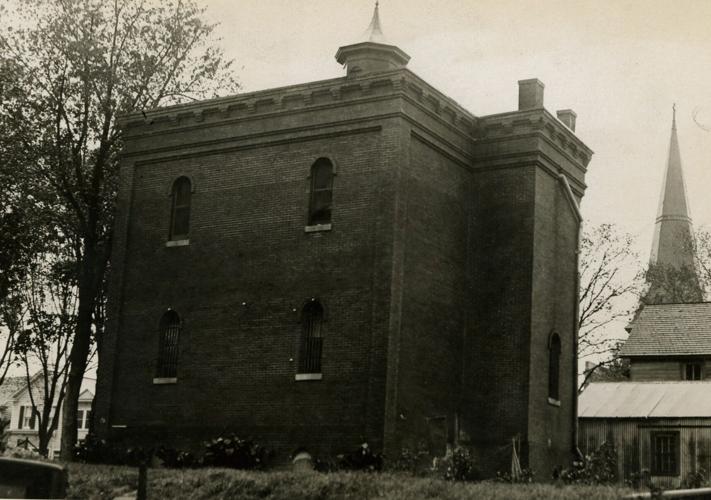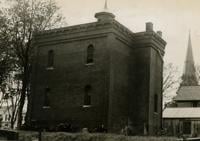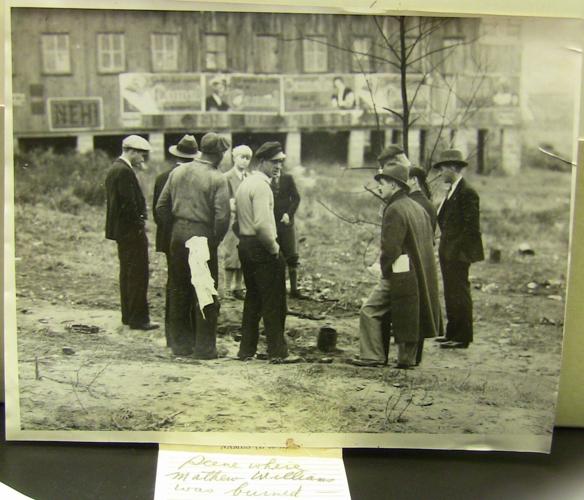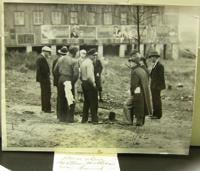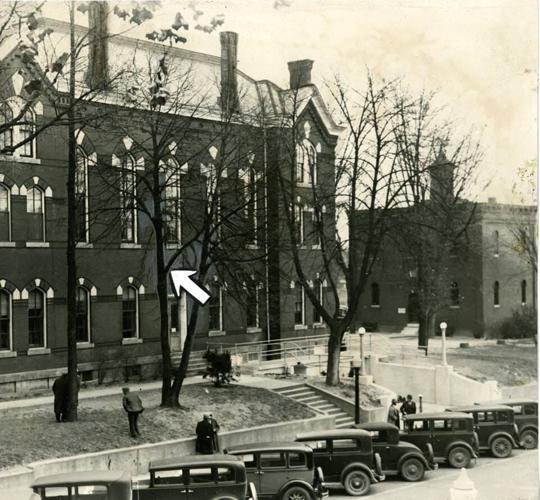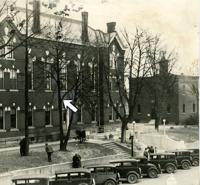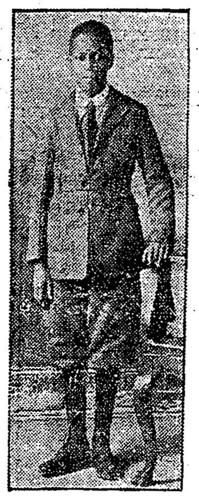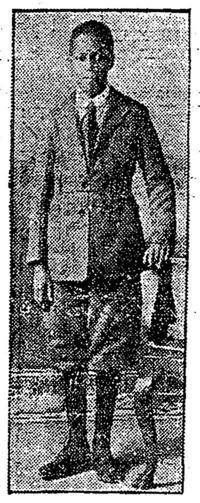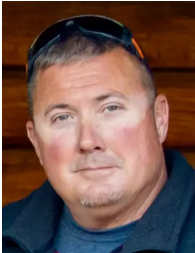February is Black History Month and throughout the month WBOC is sharing the stories of 10 men who were lynched on the Eastern Shore of Maryland during the 19th and 20th centuries.
In our multi-part series: Shameful Past: Lynchings on Delmarva, what follows is a profile of one of those men executed by mob justice.
In 1931, a lynch mob of hundreds served as the judge, jury and executioner for Matthew Williams. The 23-year-old man was the last recorded lynching in Salisbury when he was dragged from the city jail to be executed for a crime he never stood trial for.

Old Salisbury Jail courtesy of Linda Duyer
Old Salisbury Jail courtesy of Linda Duyer
"It's a bad mark in the history of Salisbury, it's a bad mark in the history of Wicomico County, and it's a bad mark in the history of Maryland, and it's a bad mark in the history of this country," said Walter Black, former president of the Talbot County NAACP.
Williams was accused of shooting his white employer D.J. Elliott over low wages. The Maryland State Archives, as well as local newspapers of the time, state that D.J. Elliott was in his office on Lake Street speaking with another Salisbury businessman when Williams entered at around 2 p.m. on Dec. 4. Williams had been working for Elliott for years prior to the shooting.
The archives state, "According to Chatham, who heard the incident over the phone, he remembered no words were spoken and that two gunshots were fired. Chatham immediately called the authorities. The authorities found D.J. Elliott dead at his desk, his son, James Elliott present, and Matthew Williams incapacitated by several gunshot wounds."
A news clipping from the Philadelphia Record, published Dec. 5, 1931, says Williams tried to commit suicide after shooting his employer, but wasn't successful. That's when Elliott's son, James Elliott came in to find his father dead and Williams groaning on the floor.

Philadelphia Record Headline
Elliott took his father to the hospital, and came back to find Williams staggering through the lumberyard, the Philadelphia Record says. That's when James Elliott shot Williams in the head.
Williams was later transferred to the hospital by local police officers.
There are varying accounts of who actually shot D.J. Elliott. One of the accounts, a biography written in the late 1970's by Joseph L. Sutton, a Dorcester County waterman, asserts it was Elliott's son, James, who was responsible. According to Sutton, numerous people at the lynching accused James of killing his father.
The biography reads, "I heard a white man from down there was telling it...he said, 'He didn't shoot that man.'" Sutton went on to say, "Didn't nobody shoot him but his son and put it on this colored fellow."
The biography goes on to say that others at the time agreed, with the word on the street being, "Wasn't nobody but his son." The account notes that Williams and the Elliott family were close and they would do anything for Williams.
While some newspapers, including the Philadelphia Record and Salisbury Times, reported Williams confessed to the killing, people like Walter Black remain skeptical--as coercion, and a lack of proper legal representation was common for African Americans at this time.
Despite who was guilty of shooting D.J. Elliott, Williams was never able to stand trial for the accusations.

Spectators viewing lynching site courtesy of Linda Duyer
After the shooting, initial reports from the Salisbury Times reported that Williams was dead when he arrived at the hospital, but after learning he was alive, a mob gathered at the hospital demanding doctors turn over Williams.
Local historian James Yamakawa tells WBOC, "A mob of hundreds took him out of Peninsula General, now Peninsula Regional Medical Center, they took him to the front of the courthouse."
The Maryland State Archives say six men stormed the hospital, reaching the Negro Ward, asking for Williams. A Miss Helen V. Wise told the men, "If you must take him, do so quietly," according to the archives.
While still bandaged up, Williams was thrown out of the window to a mob of hundreds of people waiting below who dragged Williams behind a truck to the courthouse.
Other accounts say the number of people who stormed the hospital weren't this much.
According to Charles J. Truitt, who was later a WBOC General Manager says only 12 to 15 appeared outside the hospital.
In his first-hand recollections, Truitt says, he was smuggled out through a window and walked three blocks to the courthouse lawn. There he was hanged from a tree" he writes.
But Walter Black says his grandfather was alive then, and worked across from the Wicomico County Courthouse as a chef at what was then the Wicomico Hotel, which is now an office building located at One Plaza East in Salisbury.
Black's grandfather was present to witness Williams' execution. He recounts something more gruesome and horrific.
"When the lynch mob brought Mr. Williams here on the courthouse lawn, the seat of justice, and threw the rope across the tree limb and hung Matthew Williams, my grandfather said he stood in the kitchen door and watched them," Black said.
Yamakawa also described the events as gruesome.

Afro American Headline courtesy of MSA
"They hung him, they tortured him and they eventually cut his body down and dragged him through the black neighborhoods of Salisbury, and they eventually burned his body," Yamakawa said. This aligns with reports from multiple papers at the time and the Maryland State Archives
Black said his grandfather recalled the lynch mob boasting after the killing,, "Anybody want a n*gga sandwich?"
"This signified that we were less than human. To stay in our place," Black said.
Though hundreds were reported to be in the lynch mob by local papers, Truitt wrote this in his personal account which was given to us for this story.
"There was no mob shouting as reported in some newspapers. Rather, the gathering appeared to be one of awe-struck spectators, rendered silent by the nature of the spectacle some of them had just witnessed."
Truitt says he was coming out of a movie theater at the time, so it's unclear what all he saw from the actual lynching.
Despite various accounts on what happened--Williams was still murdered.
Both Black and Yamakawa hope that Williams' story will never be forgotten, and his lynching brings races together rather than to divide.
"Because we're not taught in this country to talk about race, racism or white supremacy, and these horrific acts of violence, it's hard to get people past that defensive mode of 'I don't want to talk about this, this has nothing to do with me,' when this is connected to today," Yamakawa said.
"You can't separate the past from the present."
Though hundreds were at the site of Williams' abduction from the hospital and lynching, no one was ever charged with his murder.

Matthew Williams Lynching Site courtesy of Linda Duyer
Following Williams' death, a second body was found days later. It is believed that he was killed by the same mob that killed Williams. According to the Equal Justice Initiative, an African American man who weighed about 160 pounds was dressed in a brown khaki shirt in blood-soaked overalls.
EJI says damage to his face left the man unrecognizable. The organization says food was left nearby, including half a ham wrapped in a brown paper bag, suggesting he was walking home from the grocery store when he was attacked.
No one was ever charged in the murder of this individual as well.

